Columns
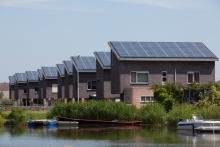
EARLIER THIS YEAR, 14 solar panels were installed on my roof. Each day since—in fact, multiple times a day—I've eagerly checked our online meters, as the sun replaces coal and nuclear plants as the provider of my home's electrical needs.
I've waited a long time for this. I attended my first energy conference in the late 1970s, when I joined several other students from the hunger action group at our Jesuit college, Seattle U., for the 20-hour van ride to Denver—even then, the connection between poverty and energy issues was clear.
That conference was one of several conducted by the U.S. Catholic bishops to gather input for what became a major and still-relevant document published in 1981 under the unassuming name "Reflections on the Energy Crisis." The statement noted that "solar power can help open the way to permanent energy security, pointing beyond the end of fossil fuels."
So last summer I was thrilled to sign a contract with a company called SolarCity, which installed the solar panels on my rooftop under a lease arrangement—they own the panels, and I buy solar power from them whenever the sun shines. And there's sure a lot of sunshine to tap: Every hour of daylight on earth, the sun releases the amount of energy consumed by the entire population of the planet in one year.
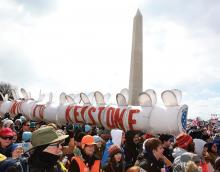
ALL I EVER wanted to see was a movement of people to stop climate change, and now I've seen it. And it looks so beautiful. It's hometown heroes like our friends in D.C. who've been fighting coal plants, and far-flung heroes like those who've been bravely blocking the Keystone XL pipeline with their bodies in Texas. It's people who understand that the fight against fracking and coal ports and taking the tops off mountains is ultimately the fight for a living planet; it's people who have lived through Sandy and survived the drought, some of whom I got to go to jail with recently.
It's the students at 252 colleges who are now fighting the fossil fuel industry head on to force divestment of their school's stock—the biggest student movement in decades. It's all of you—you are the antibodies kicking in, as the planet tries to fight its fever.
We've waited a very long time to get started, I fear. We've already watched the Arctic melt; our colleagues in 191 countries tell us daily of some new drought or flood.
Because we've waited this long, the easiest answers are no longer enough; we're going to have to make tough decisions. Our theme has to be: When you're in a hole, stop digging. Above all stop the Keystone XL pipeline. The president can do it with a single stroke of his pen, and if he does he will become the first world leader to veto a big project because it's bad for the climate. That would be a legacy—and a signal to the rest of the world that we're serious about this fight. It's his test.
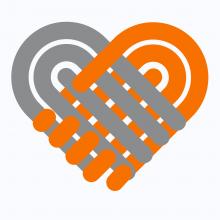
IN THE PAST 20 years, the world has witnessed the death of social contracts. We have seen a significant breakdown in trust between citizens, their economies, and their governments. In our own country, we can point to years of data painting a bleak picture of the confidence Americans have in any of our traditional institutions.
Former assumptions and shared notions about fairness, agreements, reciprocity, social values, and expected futures have all but disappeared. The collapse of financial structures and the economic crisis that followed not only caused instability, insecurity, and human pain; they have also produced a growing doubt and basic distrust in the way the system functions and how decisions are made.
This year, at the World Economic Forum in Davos, Switzerland, we looked to the future and asked, "what now?" At a key session—"The Moral Economy: From Social Contract to Social Covenant"—a document was announced that kicks off a year-long global conversation about a new "social covenant" between citizens, governments, and businesses.
It is really a call for worldwide discussion about what values are needed to address the many difficult challenges the world is now facing. Inequality, austerity, retrenchment, maldistribution, conflicts over resources, and extreme poverty all raise questions about our values.

THE DAY BEFORE President Obama's second inauguration (campaign code name: "Neener, neener, neener!"), Republican Sen. Mitch McConnell sent an email to constituents with a message somewhat lacking in a spirit of new beginnings: "The gun-grabbers in the Senate are about to launch an all-out assault on the Second Amendment. They're coming for your guns."
This is disturbing. I don't have any guns, but I'm looking for places to hide them. And without guns, how will I protect my family from the coming assault? Can I hold off federal agents by flinging small appliances at them? Those I've got. In fact, I just got a new hand mixer. It's black and sleek, like the helicopters that will soon be circling over our homes. (Helicopter tip: Make sure the rotor blades have completely stopped before licking off the icing.)
Under Obama's new proposals, I'll probably have to register my appliances, or at least submit to a background check before I buy another one. Although I've heard you can avoid that if you get them at private appliance shows.
This latest attention to gun control prompted National Rifle Association leader Wayne LaPierre to take the stage and, looking directly into the eyes of the American people, vehemently deny that he is French. Additionally, he helpfully pointed out that "the only thing that stops a bad guy with a gun is a good guy with a gun." Or was it the other way around? To be honest I'm not sure what he said, because I got distracted by the wild look in his eyes, and the bits of saliva that gather in the corners of his mouth whenever he talks about guns. This guy really likes guns.
What I would ask Mr. "LaPierre" [giggle]—while keeping both hands out where he could see them—is this: How do you stop a good guy with a gun who's having a bad day? Or what if he's really depressed or angry at his boss for not allowing him to wear camouflage clothing to staff meetings?

FROM THE RIVER to the rope. From the creek to the cross. From the dove and a "voice from above" to death by state execution and profound silence.
This is Lent. This is the Jesus Road, the Christian way. O Lord, how can we follow you?
Lent is time of remembering ourselves. In the ancient church, those preparing for baptism were publicly challenged: Do you renounce your bondage to Master Satan? Do you reject the slave-mind and all its glamour and subtle temptations? Will you allow Christ to buy your freedom?
The catechumen turned to face the east and the dawn, answering: "I give myself up to thee, O Christ, to be ruled by thy precepts."
It is Lent. We go down to the river to pray. We step into the waters of repentance. We surface as a new creature in Christ. From that moment onward, we imprint on Jesus. This is our survival strategy as newborn disciples. We follow him, like ducklings behind their mother.
After his baptism in the Jordan River, Jesus is driven straight out—into the unloved places, into the wilderness. There he is pricked by demons to toughen him up. He is being prepared. He must look into his own despair. Satan is the supreme surgeon for separating us from our hope.
WHO SHOULD BE able to pray at a presidential inauguration and what should that prayer be?
On Jan. 20, 1937, Monsignor John A. Ryan delivered the first inaugural benediction at the inauguration of Franklin D. Roosevelt with these words: "Almighty God, ruler of nations, we beseech thee to bless the people of the United States. Keep them at peace among themselves and in concord with all other peoples. Cause justice and charity to flourish among them, that they may all be enabled to live as persons created in thine own image and likeness."
Since this first benediction, ministers, priests, bishops, cardinals, and rabbis have offered prayers at the past 18 presidential inaugurations. Almost 76 years to the day since Father Ryan's benediction, Myrlie Evers-Williams became the first layperson to deliver the inaugural invocation, and Rev. Luis León, an Episcopal priest, offered his prayer for President Obama and our nation: "... with the blessing of your blessing, we will see that we are created in your image, whether brown, black, or white, male or female, first-generation immigrant American or daughter of the American Revolution, gay or straight, rich or poor ... with your blessing we will recognize the abundance of the gifts of this good land with which you have endowed this nation."
You may remember that the selection of Rev. León, like most decisions made in Washington today, did not come without controversy and an onslaught of protests. León, who ministers at St. John's Church near the White House and is known for welcoming openly gay Christians, replaced the administration's first choice, Rev. Louie Giglio. Giglio withdrew from the ceremony after the surfacing of his controversial sermon from 20 years ago condemning gay relationships. Giglio's stance on the issue of gay marriage is in sharp contrast to the beliefs of Rev. León, whose parish will begin to bless same-sex partnerships and ordain transgender priests this summer.
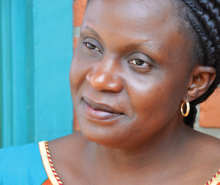
THE DEATH OF a college student who had been gang-raped in Delhi provoked outrage and anger. More than 2 million Indian students joined a movement to protest the rising violence against women in India. According to official data, reported cases of rape have more than doubled in the past 20 years, and women are the victims of a high proportion of other violent crimes.
But there's another side to this story. "Almost as shocking as the Delhi gang rape has been the range of voices that have sounded after it," wrote Sagarika Ghose, a TV journalist and commentator. "Patriarchy is chillingly omnipresent." Rather than blaming those who attack women, leaders in some Indian villages blame Westernization, liberal consumerism, growing individualism, or even the women themselves—because they wear "skimpy clothes," talk on mobile phones, and work outside the home, according to South Africa's Mail & Guardian newspaper.
For 19-year-old Kanika Sharma, these leaders miss the point. "It is all about the mentality of the boys," Sharma told the Mail & Guardian. "They think because they are men, they can do anything. But girls should get equal rights and opportunities."
Sharma speaks while standing under a sign that says: Being a woman should not make you feel vulnerable. But sadly, throughout the world women do feel vulnerable.
Before I traveled to the Democratic Republic of Congo (DRC)—described as the "rape capital" of the world—I studied reports on rape as a weapon of war. In the DRC rebel soldiers have brutally raped thousands of women. They know that if they rape enough women and girls, they can destroy the social fabric of an entire community.

I RECENTLY FINISHED a new book, which we launch on April 1, the day after Easter. The beginning of the Easter season is a liturgically appropriate moment for the introduction of a hopeful book in what many feel is a hopeless time.
I wanted to tell you, our faithful magazine readers, why I wrote this book, and why I called it On God's Side: What Religion Forgets and Politics Hasn't Learned About Serving the Common Good.
This is not just another book for me. I wrote it during a three-month sabbatical that started in a monastery overlooking the Pacific Ocean. Every day started before sunrise with prayers, walks, yoga, and exercise, followed by writing the rest of the day. My other discipline was not to write or comment publicly on the news. I watched the nation's political discourse each night after a day of writing and found it more depressing than ever. It was an election year.
The resulting book is not about politics in the narrow sense, but about how to engage our personal and public lives with an ancient but timely idea and practice—the common good—that has long and deep historical roots across many religious faiths and secular notions of democracy. I sought to explore the biblical and theological roots of the idea, and then apply it to the most basic questions of economic trust, the role of government, civility, renewing democracy, globalization, conflict resolution in a violent world, and, of course, what our faith can contribute to the common good with the world as our parish. Most compelling, I found Jesus' call to love our neighbors to be the gospel foundation for serving the common good, and the excerpt in this issue, "A Gospel for the Common Good" (page 16), makes the case for that.
For Christians, the book explores a fundamental question: Why did Jesus come, and what do the gospel and the mission of the church really entail? The book's message is that when people of faith actually say and do the things their faith stands for, two things happen: at first other people are surprised, and then they are attracted. It examines both inspirations and practices for how we can respond to the growing hunger for a better life together and find common ground for the common good, especially in relation to those who are the most vulnerable.
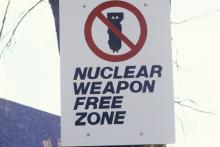
HOW MANY NUCLEAR weapons make us "safe"?
At the height of the Cold War, both the U.S. and the Soviet Union had tens of thousands of nuclear warheads, aimed at each other's cities, towns, and military targets. Not many felt that the world was somehow made safe by this hair-trigger, apocalypse-risking standoff.
The Soviet Union is long gone, but the Cold War mentality that fueled the era's nuclear arms race seems to linger on. According to a December report by the Federation of American Scientists, the world's combined stockpile of nuclear warheads is still more than 17,000. Of these, the report continues, "some 4,300 warheads are considered operational, of which about 1,800 U.S. and Russian warheads are on high alert, ready for use on short notice."
President Obama, for his part, has laid out what he called his "vision of a world without nuclear weapons." In a speech last March in Seoul, South Korea, Obama said the goal of a nuclear-free world "would not be reached quickly, perhaps not in my lifetime," but that it must begin "with concrete steps." He continued, the "massive nuclear arsenal we inherited from the Cold War is poorly suited for today's threats," and "we can already say with confidence that we have more nuclear weapons than we need." (That could be considered a gross understatement, since the next leading nuclear threat—China—has only about 50 warheads on ICBMs that could reach the U.S.)
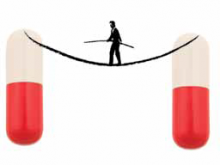
AS WE MOVE along in 2013, more initiatives will be coming on line from Obamacare (technically the Patient Protection and Affordable Care Act, although if you rearrange the letters it spells "death panels"). Starting next year, insurance companies can no longer deny coverage for anyone with pre-existing conditions, which is good news for Mitch McConnell, who might want to have his permanent frown removed. Additionally, the law requires that all tea party members take a spoonful of castor oil before bedtime and wear coarse undergarments close to the skin. (Hey, it was a big bill, with lots of fine print.)
What won't change, however, is our relationship to the pharmaceutical industry, known as "Big Pharma"—which is not, as you may have thought, the nickname of a linebacker from one of our agricultural-state colleges, but rather shorthand for "companies that combine ground-breaking science with the business model of a crack dealer." No offense to crack dealers.
I recently had a personal experience with Big Pharma, after two weeks with a projectile cough that filled the middle distance with an alluring prismatic mist. Office colleagues did not appreciate my little air rainbows, so I contacted my doctor for advice, using the convenience of email rather than driving over and changing into a disposable paper gown which—and I feel strongly about this—does not adequately flatter the body of a mature man.
I described my symptoms with a level of detail that only a professional writer can do, using the lushness of the English language to create a memorable narrative of my condition and symptoms. Naturally, I expected my doctor to reply in kind. But she didn't: "You're sick. Here's a prescription." (Science geek.)
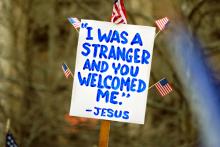
DURING THE SUMMER of 2003, 25 staff of InterVarsity Christian Fellowship and their families rode a bus through 10 states on the "Pilgrimage for Reconciliation." We retraced the Cherokee Trail of Tears and explored the journey of African Americans from slavery to the civil rights movement.
As we rolled over land that had witnessed the most evil individual acts and public policies enacted on American soil, and as we heard again and again how the church was either silent or complicit, we wondered aloud: "What issue will cause our grandchildren to look back at us and ask, 'Where were you?'"
There are many we could choose from. But on this day, approaching spring 2013—a decade after our pilgrimage, 50 years after Dr. King's "Letter from Birmingham Jail," 150 years after the Emancipation Proclamation—I know where I stand. On this day, I stand with my sisters and brothers in the church who are pressing our nation's leaders toward just and comprehensive immigration reform.
In the last three years, more than 1 million men, women, and children have been erased from our land through deportation. They were caught between two signs at our border: "Help Wanted" and "No Trespassing."
By law, only 5,000 "unskilled" workers are allowed into the U.S. through legal means each year. That is about the number of people processed on Ellis Island every day in the early 1900s. Meanwhile, our nation's industry and food supply rely heavily on the labor of immigrant populations. About 75 percent of all U.S. farmworkers are unauthorized immigrants. Then consider other industries: meatpacking, hospitality, restaurants, transportation. The disparity between the demand for workers and the supply is untenable.
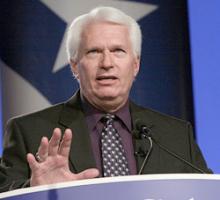
DIVINING GOD'S intent is incredibly easy—all you have to do is seek out his representatives here on earth, like Bryan Fischer, director of "issue analysis" for the American Family Association, "where he provides expertise on a range of public policy issues."
Indeed, Rev. Fischer speaks for the Lord on any number of topics (badness of gay people getting married, badness of Barack Obama who nurtures a "hatred of the white man," badness pretty much of anything that's changed since Fischer was born in 1951). But in the autumn, he offered the authoritative assurance that there was one thing God thought was really, really good: fossil fuel.
Fischer said that not using all the coal and gas and oil we could find was an affront to God—it would hurt God's feelings. In fact, he offered an analogy: Once "I opened up a birthday present that I didn't like, and I said it right out, 'Oh, I don't like those,'" he explained. "And the person that gave me the gift was there. And it just crushed that person. And you think, that's kind of how we're treating God when he's given us these gifts of abundant and inexpensive and effective fuel sources," Fischer added. "And we don't thank him for it and we don't use it. ... You know, God has buried those treasures there because he loves to see us find them."
That's really top-notch theology, as other similar top-notch theologians would attest. Dr. Calvin Beisner, for instance, is a founder of the Cornwall Alliance, the premier faith-based climate-change-denial operation on the planet. Sharing the microphone with Rev. Fischer, Rev. Beisner pointed out that not burning fossil fuel is really "an insult to God"—and that Jesus, too, wants us burning coal. If we didn't take advantage of all the flammable rocks on the planet, Beisner said, we would be like the "wicked and lazy steward" who was given talents by his master but simply buried them.
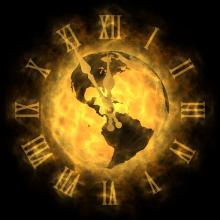
A RECENT RETREAT of evangelical environmentalists raised this theological question: Should we have expected most people in the developed world to hear the scientific evidence proving the great dangers of climate change and then decide to quickly change themselves—their view of the world, their lifestyles and politics—and to withdraw their support from the fossil fuel economy that is threatening the planet and its people?
Those of us gathered at the retreat didn't think so. We human beings just aren't that smart, wise, good, or unselfish. It's more human to deny the evidence, attack the messengers, delay the response, and just hope everything works out. That's what many have done. And since our political system is even more dysfunctional than most of the people it represents—and is bought and paid for by the gas and oil interests that control the economy—the chances are low for courageous and far-sighted leadership.
So what kind of wake-up call will it take to reduce the carbon emissions we humans create, which are warming the earth's temperature and endangering our future in increasingly dramatic ways? Perhaps it will take disruption and devastation—which is becoming the "new normal." So-called once-in-a-lifetime storms are now becoming frequent, with Superstorm Sandy only the most recent example.
Sandy seemed to get people's attention in a way we haven't seen since the 2010 BP oil spill in the Gulf. It came in a year when the lower 48 states suffered the warmest temperatures and most disruptive weather patterns since such records have been kept. We're already spending billions in emergency aid for the victims of hurricanes and weather disasters; those numbers will only increase. In addition to Sandy, we had 10 other billion-dollar weather disasters in 2012, including Hurricane Isaac and terrible tornadoes across the Midwest and Great Plains.
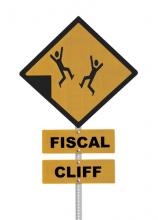
SO HOW WAS your fall off the fiscal cliff? Did you drop straight to the bottom or bounce several times off jagged rocks on the way down, land in a bramble bush, and then stare back up at that annoying roadrunner? Ouch. (And why didn't the roadrunner jump off the cliff? Did he have a more reasonable approach to spending and taxation? Is he naturally more conciliatory with his opponents? Nah. He's just smarter about sudden dropoffs.)
I'm just asking because, as I write this, we're still heading toward that cliff, so I won't know if we drove off it, braked just short of it, or maybe stopped to ask directions from an old guy sitting by the side of the road in a tattered beach chair. "Yup, you keep going straight for a couple miles, then look for the coyote tracks."
There is no question that our nation is facing major fiscal imbalances—although, to be fair, our low wages are more than offset by high cholesterol. But hopefully the president—Barack "Whew!ssein" Obama—will have avoided the impending crisis by reaching a compromise with Republican leaders, although at press time it seemed he was drawing a clear line in the sand. Of course, that's easy to change because, you know, it's just sand.
But I've never cared for the cliff analogy. I think of a cliff as something you throw things off, like a stick you found, or a rock, or a Fox News pundit who is now talking positively about immigration reform. (Don't forget to make a wish before you make the toss.)
DURING THE unseasonably warm autumn of 1951, 22-year-old Martin King Jr. began his doctoral work in systematic theology at Boston University. Wearing his good suit in a stifling classroom, he was first introduced to the work of philosopher and ethicist Josiah Royce. King read Royce's well-regarded 1913 book The Problem of Christianity and wrestled with Royce's metaphysical values of loyalty, communitarian ideals, and the role of the individual within a group.
But don't let the high academic or philosophical language fool you. Royce was interested in only one thing: Love. It was the hidden heart of all his endeavors. And King began to study—and embrace—Royce's most important philosophical concept: the Beloved Community.
Though Royce had first written about the Beloved Community nearly 40 years earlier, King heard it in the context of his own time and place. He heard it in the context of the insidious Jim Crow laws of the South. In 1951 he also heard it in the context of the bitter race realities of the North. The July before King started classes at Harvard, a race riot had erupted in Cicero, Illinois, outside Chicago. A mob of whites attacked an apartment building that housed one black family, that of Harvey Clark Jr., a WW II veteran and bus driver who had moved into the all-white neighborhood.
DURING THE BALKAN war of the early ’90s, I traveled twice to Bosnia and Croatia. I visited middle-class women whose husbands and sons had been brutally killed. I visited a refugee center filled with people who had lost everything and were at the mercy of any country that would take them in. I visited school children suffering from post-traumatic stress after seeing their parents killed by enemy shells that landed in their homes.
I walked through the rubble of Mostar, where the Friendship Bridge—a massive stone structure named in honor of the many ethnic groups that had crossed it for four centuries—had been bombed and destroyed. In city after city, I saw the destruction of architecture, art, museums—a violent erasure of the cultures that had thrived there.
It was the first time I had seen war up close, and I was shocked by what human beings do to each other.
While I traveled in the Balkans, another war was waged in Rwanda by Hutus against Tutsis—what we now refer to as the Rwandan genocide. Since 2009 I’ve traveled twice to the Democratic Republic of Congo, where the ethnic battles forged in Rwanda crossed borders and continue to this day. As usual in war, civilians pay the highest price. Subsistence farmers in small villages want only to live in peace, tend their crops, and feed their families. Instead, their crops are burned, wives and daughters are raped, and many become slave labor in Congolese mines that provide minerals for our cell phones and wealth for the violent criminals who control the mines.

PERHAPS NO FRAMEWORK has impacted my organization, Interfaith Youth Core, more than Marshall Ganz’s approach to public narrative (“leadership storytelling”), best articulated in his March 2009 Sojourners article “Why Stories Matter.” We use it in our trainings with college student interfaith leaders and recommend it in the workshops we do with university faculty. Most famously, it was employed by the 2008 Obama campaign.
Like all effective frameworks, there is both a visceral and a heady quality to what Ganz teaches. Stories are the way human beings understand and communicate our deepest values, Ganz says, and there are three major stories that leaders must tell. The first is the story of self. This is not a selfish activity, or even one just about self-understanding (although that is certainly a piece of it). It’s about interpreting to others your reasons for being engaged in a struggle. This helps them understand your involvement and, more important, gives them inspiration and language to get active themselves.
The second type of story is the story of us. Religions, races, ethnicities, and nations tell such stories brilliantly but often do it in a way that excludes—and makes enemies of—those outside the magic circle. The challenge for the 21st century leader is to tell a story of us that includes people of all backgrounds who are fighting for the same cause. Stories of us build community out of people who would otherwise be strangers.

WILL THE MASSACRE at Sandy Hook Elementary School touch the nation’s soul or just make headlines for a short time? I think that will be up to us who are parents—to respond as parents.
The brutal shooting of 20 6- and 7-year-old schoolchildren in their own classrooms touches all of us, and as the father of two young boys I’m especially struck by the way it touches parents: from the heartbreak of the parents in Newtown to the tears in the eyes of Barack Obama as he responded—not just as the president but also as the father of two daughters—to the faces of the first responders and reporters who are parents. I have felt the pain and seen the look on the face of every parent I have talked with since this horrendous event occurred. Virtually every mother and father in America has turned their grieving gaze on their own children, realizing how easily this could have happened to them.
The day after the Connecticut massacre, my wife, Joy, and I went to our son Jack’s basketball game. The kids on the court were the same ages as the children who were killed. I kept looking at them one by one, feeling how fragile their lives are.
Our first response to what happened in Newtown must be toward our own children: To be so thankful for the gift and grace they are to us. To be ever more conscious of them and what they need from us. To honor the grief of those mothers and fathers in Connecticut who have so painfully lost their children, we must love and attend to ours in an even deeper way.

I DON'T WANT to keep harping about this climate change thing, but someone has to have the singular courage to stand up for the future of our globe. Someone, I mean, besides 98 percent of the world's climate scientists, the governments of every other industrialized nation, and millions of people around the world. Not counting those, I am that man.
Because I have seen the future of a warming planet, and it's not just fraught with melting glaciers and rising oceans. It's also got stink bugs.
Twice a year, Sojourners' editors and its highly esteemed art director drive to a cabin in the mountains of West Virginia to plan future issues. (I will pause briefly for Colorado readers to stop laughing convulsively at the suggestion that hilltops a few hundred feet above sea level can be called "mountains." But if I get carsick on the drive up, I'm calling it a mountain.)
After we arrived this fall—and my stomach finally calmed down—we settled into our usual method of magazine planning: a rapid-fire brainstorming of ideas both provocative and ground-breaking, but not so much that it keeps me awake. Then came the first telltale tapping sounds from the window.
A half-dozen stink bugs had gathered on the inside of the pane, with a dozen more on the outside, all of them repeatedly bumping into the window, unable to decide on one plan of action. But enough about Mitt Romney.
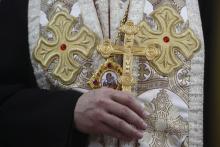
FATHER JACK MORRIS was one of those Catholic priests who ruined a lot of people for life. I'm one of them.
Father Morris passed away Sept. 30 in Spokane, Wash. He was working with the Catholic sisters and others who ran the highly regarded Copper Valley School in Alaska in the late 1950s when he took the idea of young people volunteering their time with and for Native Alaskans and helped turn it into the Jesuit Volunteer Corps. Since then, more than 12,000 people have served in the JVC, whose motto "ruined for life" reflects the fact that voluntary service often makes enduring changes in the way participants view the world. (A few years ago, Father Morris told Sojourners that the motto is "a resurrection statement"—through volunteering, he said, "you're transformed.")
I spent my first two years after college as a Jesuit Volunteer, first at the Oregon Center for Peace and Justice in Portland and then at Georgetown University's Center for Peace Studies. My mentor and boss in Portland was the center's director, Sister Michele Phiffer. She worked for years helping Catholics in Oregon understand the church's social teaching on the common good and the preferential option for people who are poor.
Perhaps needless to say, the local bishops weren't always on her side. In fact, it often appeared—even to my young eyes—that the bishops were more interested in protecting their own privilege and power than in genuinely working for the marginalized. And Sister Michele's gender seemed to be a factor in the lack of support she received from the episcopal powers that were.